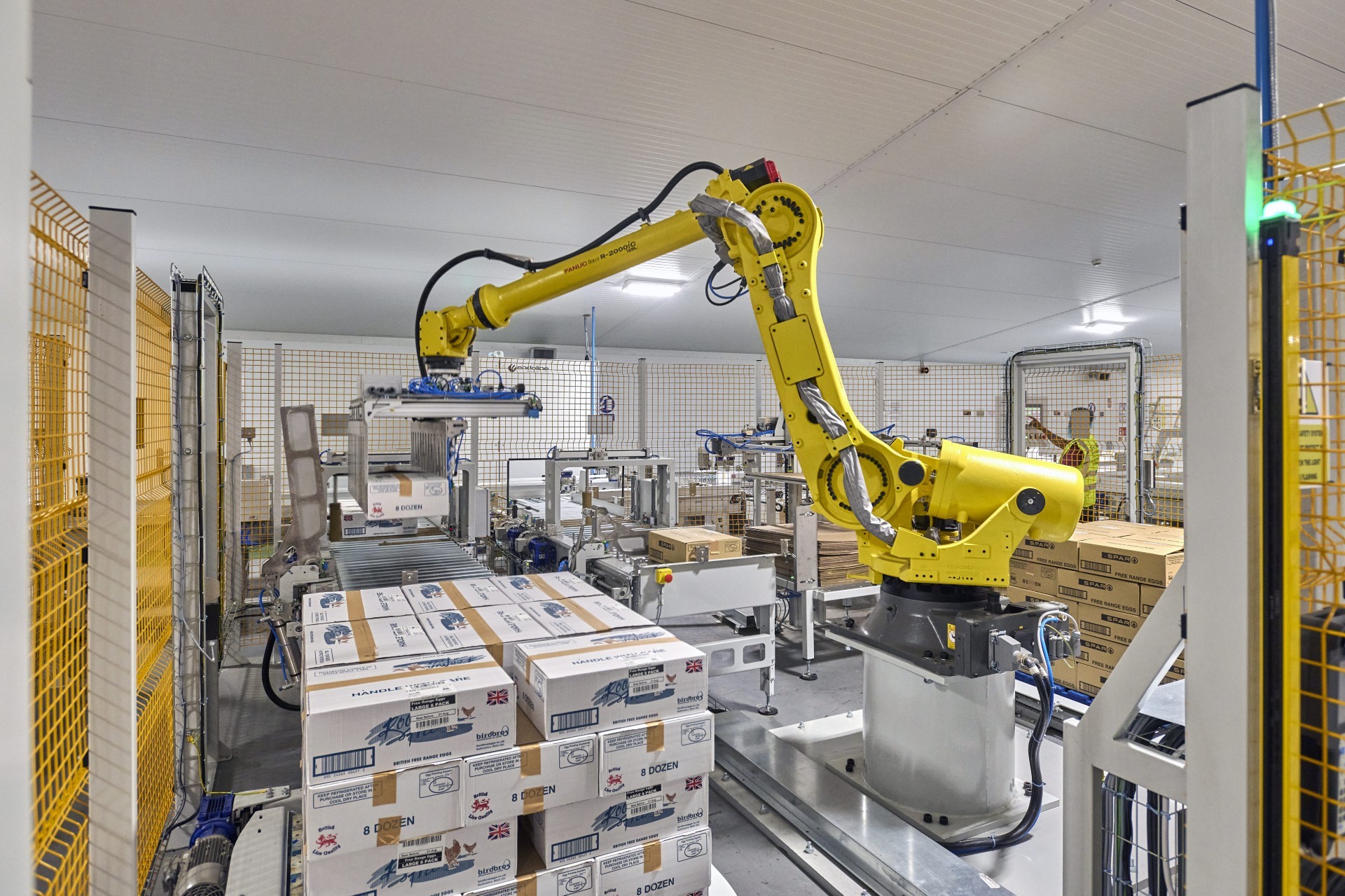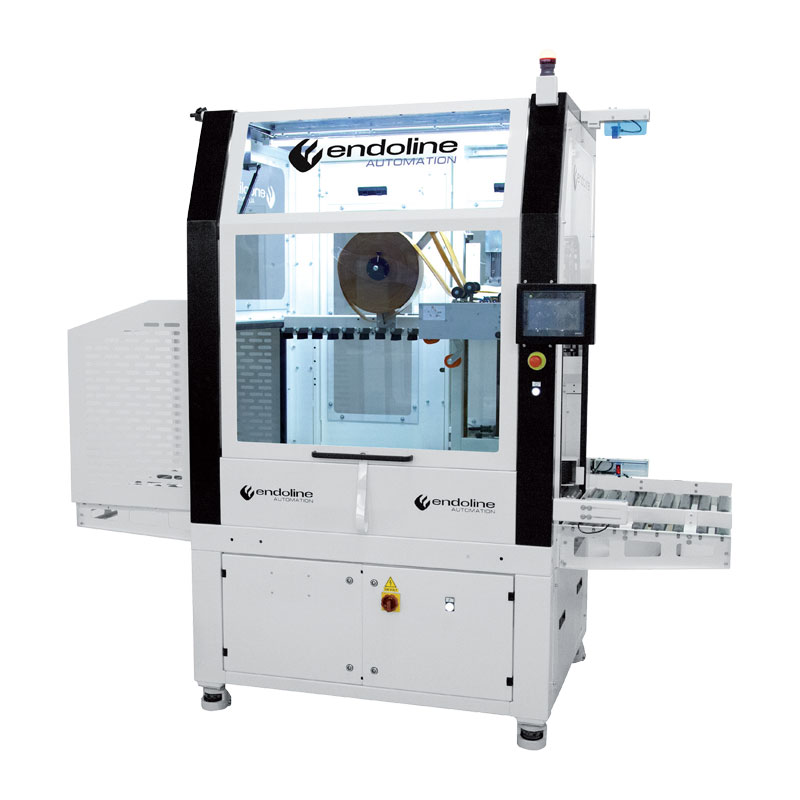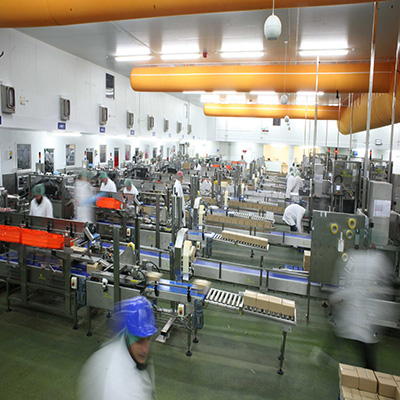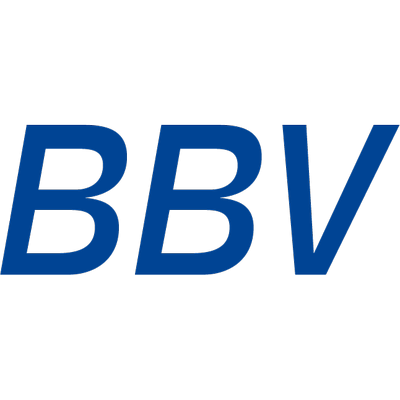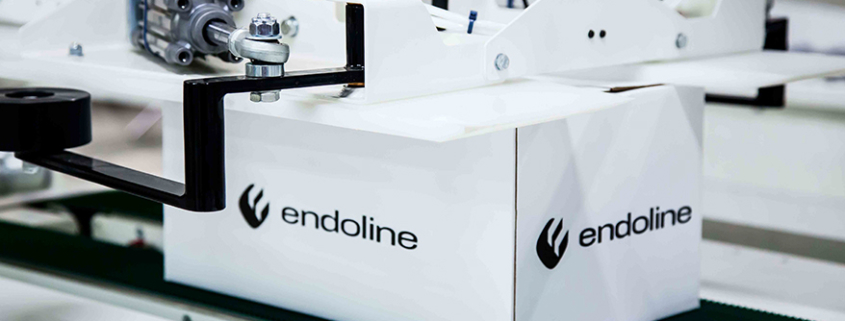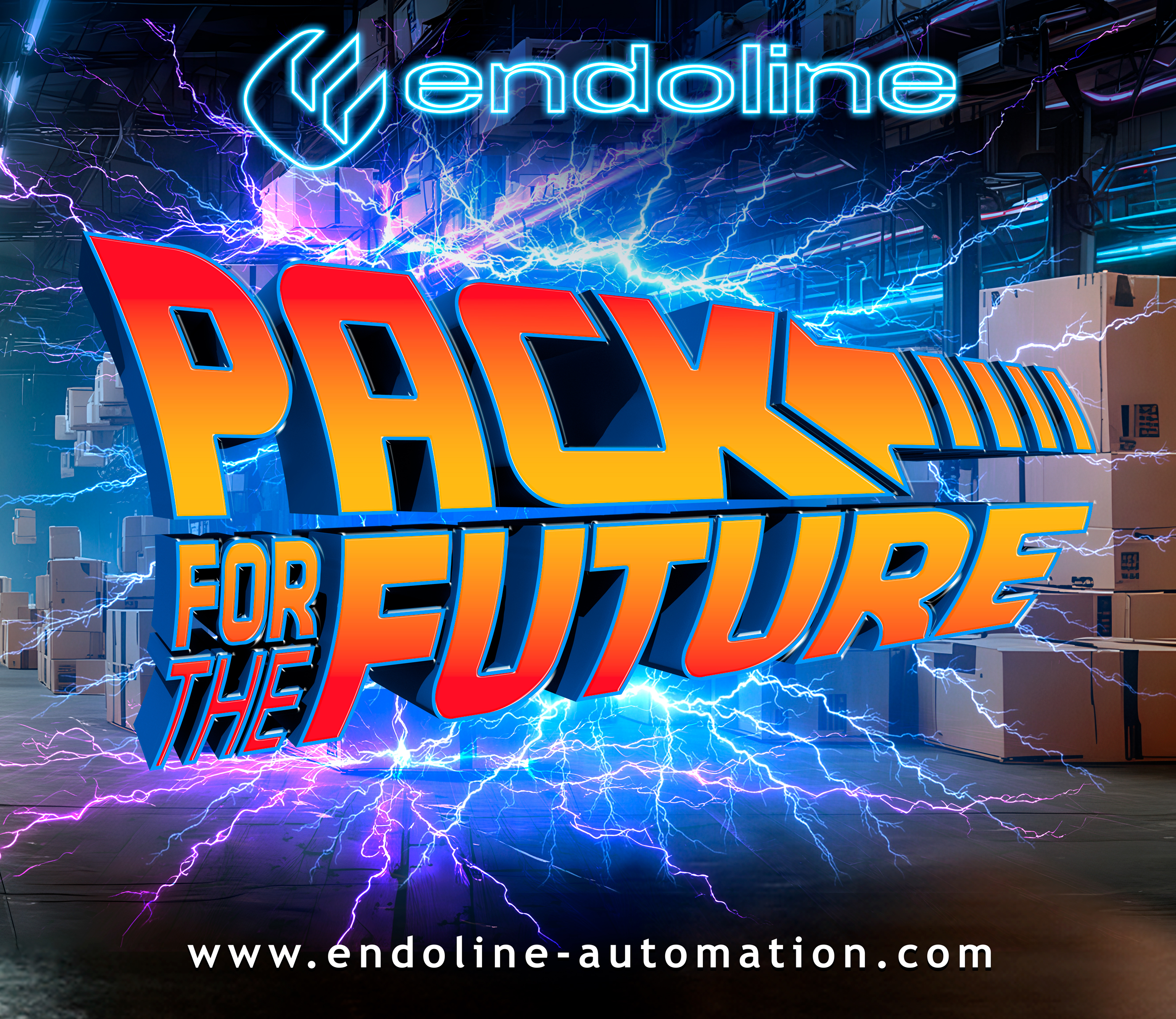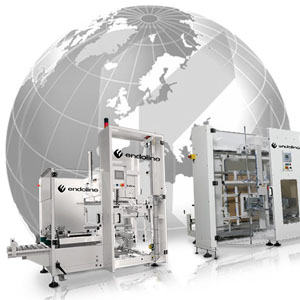Endoline Robotics Powers Bird Brothers’ Future with Smart Robotic Palletising System
UK automation specialist Endoline Robotics has completed the installation of a fully integrated robotic palletising system for Bird Brothers, one of the most well-established, family-run UK egg producers.
The new system marks the latest milestone in a long-standing automation partnership between the two companies – and plays a central role in Bird Brothers’ strategy to deliver greater efficiency, sustainability, and growth capacity.
Supplying up to 5 million eggs every week to retailers, wholesalers, and food service businesses across the UK, Bird Brothers recently invested over £1 million in automation to streamline operations and overcome end-of-line bottlenecks at its Bedfordshire headquarters.
At the core of this investment is a pair of robotic palletising cells from Endoline Robotics, designed to intelligently handle high-speed SKU sorting and palletising with precision and minimal manual intervention.
A Seamless, Smartly Integrated Line
This latest installation builds on a fully integrated end-of-line solution developed in multiple phases over several years through a trusted partnership with Endoline. The process begins with Endoline Automation’s space-efficient 251 Slimline Case Erectors, designed specifically to integrate with MOBA MR12 robotic loading systems – a market-leading egg packing solution. These erectors form cases with speed and consistency, feeding directly into the line for packing.
Once filled with egg cartons, cases are sealed using Endoline’s high-speed 734 Fully Automatic Random Case Sealer. This system efficiently seals up to 22 randomly sized cases per minute, supporting the high-volume demands of Bird Brothers’ distribution network.
After sealing, cases are scanned to verify contents and ensure they’re sent to the correct palletising line. Previously, misrouted products could lead to full pallet rejection – a costly waste point. Endoline’s solution resolves this with intelligent product scanning and routing, drastically reducing waste and increasing order accuracy.
Robotic Efficiency – Built for Growth
The newly installed robotic palletising system, commissioned in February 2025, is capable of handling up to 40 cases per minute. Operating across eight SKU lines the system is built for both performance and scalability.
The two robotic palletisers, automate the palletising of the four highest-volume SKUs, while the remaining four lower-volume SKUs are currently handled manually – with infrastructure already in place to automate these in future phases.
To maintain seamless operations, Endoline installed 50 metres of conveyor systems, including a carousel-style accumulation conveyor designed to handle brief pauses in palletising. When the palletiser is momentarily halted, the carousel gently loops cases in continuous motion. As soon as the system detects a new pallet is ready, it automatically feeds the cases back into the line – ensuring consistent, uninterrupted productivity.
Overcoming Labour and Waste Challenges
Before automation, all eight packing lines were manually palletised. This not only demanded significant labour but introduced inefficiencies, especially if egg cases were incorrectly sorted by weight or SKU. With Endoline’s intelligent routing and scanning, these risks have been virtually eliminated.
“This system brings together intelligent scanning, high-speed sealing, and precision palletising into one seamless line – enabling Bird Brothers to dramatically improve throughput, accuracy, and resilience,” comments Andrew Yates, Managing Director of Endoline Robotics. “It’s a future-proof solution that supports both immediate operational needs and long-term growth.”
Strategic Automation Supporting Sustainable Growth
Bird Brothers’ investment aligns with its wider Vision 2028 strategy – a multi-million-pound plan to phase out colony cage egg production by the end of 2028 and transition to more sustainable and welfare-conscious practices.
With rising consumer demand, growing SKU complexity, and labour pressures across the supply chain, this project demonstrates how Endoline Robotics can deliver intelligent, scalable automation to meet the evolving needs of modern food production.
“Partnering with Endoline Robotics has enabled us to take a major step forward in our automation journey,” comments Matthew Bird, from Bird Bros. “This new robotic palletising system not only removes bottlenecks from our end-of-line process but also gives us the scalability we need to meet growing customer demand. By investing in smart, integrated automation, we’re strengthening our efficiency today while laying the foundation for long-term, sustainable growth.”

